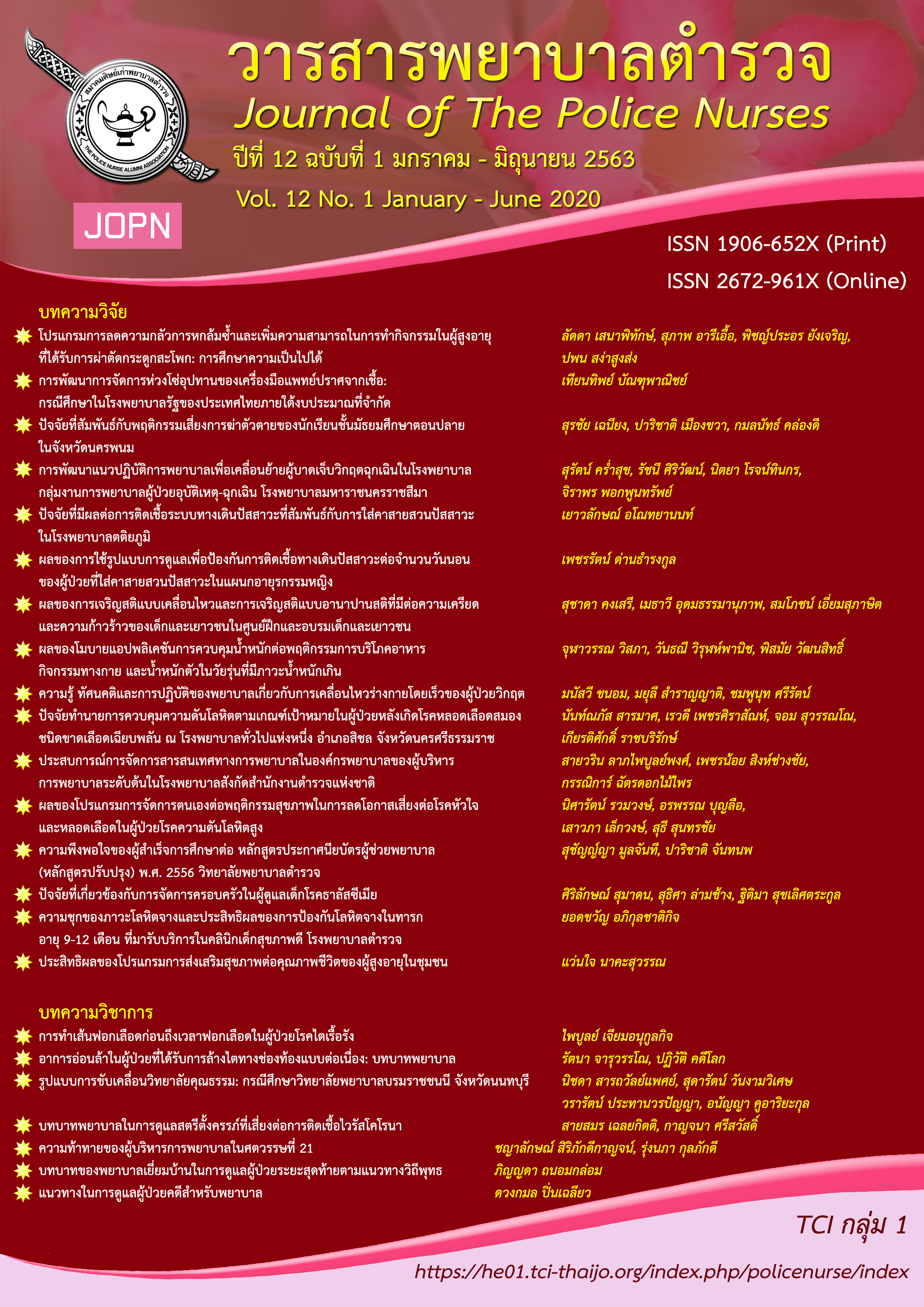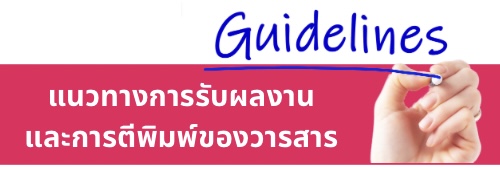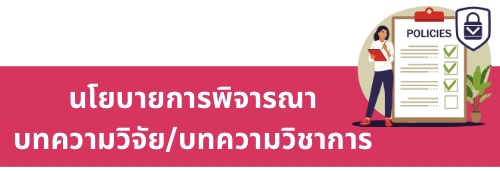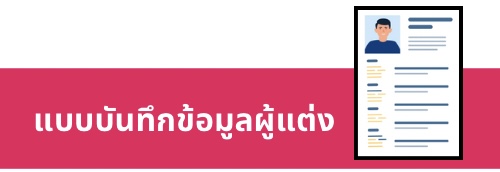ผลของโปรแกรมการจัดการตนเองต่อพฤติกรรมสุขภาพในการลดโอกาสเสี่ยงต่อโรคหัวใจและหลอดเลือดในผู้ป่วยโรคความดันโลหิตสูง
คำสำคัญ:
โปรแกรมการจัดการตนเอง, พฤติกรรมสุขภาพ, โอกาสเสี่ยงต่อโรคหัวใจและหลอดเลือด, โรคความดันโลหิตสูงบทคัดย่อ
การวิจัยครั้งนี้เป็นการวิจัยกึ่งทดลองเพื่อศึกษาผลของโปรแกรมการจัดการตนเองต่อพฤติกรรมสุขภาพในการลดโอกาสเสี่ยงต่อโรคหัวใจและหลอดเลือดในผู้ป่วยโรคความดันโลหิตสูง โดยใช้กรอบแนวคิดการจัดการตนเองของเครียร์ (Creer, 2000) คัดเลือกตัวอย่าง 2 กลุ่ม คือ กลุ่มทดลองและกลุ่มควบคุมจำนวนกลุ่มละ 33 คน กลุ่มทดลองได้รับโปรแกรมการจัดการตนเองเป็นระยะเวลา 24 สัปดาห์ ส่วนกลุ่มควบคุมได้รับการดูแลตามปกติ เครื่องมือที่ใช้ในการวิจัยประกอบด้วย โปรแกรมการจัดการตนเองต่อพฤติกรรมสุขภาพในการลดโอกาสเสี่ยงต่อโรคหัวใจและหลอดเลือดในผู้ป่วยโรคความดันโลหิตสูง คู่มือการจัดการตนเองเพื่อควบคุมโรคและลดความเสี่ยงต่อการเกิดโรคหัวใจและหลอดเลือดสำหรับผู้ป่วยโรคความดันโลหิตสูง โปรแกรมการประเมินความเสี่ยงต่อการเกิดโรคหัวใจและหลอดเลือด (Thai CV risk score) และแบบประเมินพฤติกรรมการจัดการตนเองเกี่ยวกับโรคความดันโลหิตสูง ผ่านการตรวจสอบความตรงของเนื้อหาโดยผู้ทรงคุณวุฒิ และหาค่าความเที่ยงของเครื่องมือด้วยวิธีแอลฟา ของครอนบาคได้ค่าเท่ากับ .820 วิเคราะห์ข้อมูลโดยสถิติเชิงพรรณาและการทดสอบที
ผลการวิจัยพบว่า ภายหลังเข้าร่วมโปรแกรม 24 สัปดาห์ กลุ่มทดลองมีค่าเฉลี่ยคะแนนพฤติกรรมการจัดการตนเองสูงกว่ากลุ่มควบคุมอย่างมีนัยสำคัญทางสถิติที่ระดับ .05 และมีค่าคะแนนระดับความเสี่ยงต่อโรคหัวใจและหลอดเลือดต่ำกว่ากลุ่มควบคุมอย่างมีนัยสำคัญทางสถิติที่ระดับ .05
ข้อเสนอแนะโปรแกรมการจัดการตนเอง ควรนำไปใช้ในการเสริมสร้างสุขภาพของผู้ป่วยโรคเรื้อรังอื่น ๆ เพื่อเป็นแนวทางในการพัฒนารูปแบบการดูแลผู้ป่วยให้มีประสิทธิภาพที่มุ่งเน้นผลลัพธ์ทางคลินิกที่ดีต่อไป
Downloads
เอกสารอ้างอิง
Boontien, P., Saneha, C., Pinyopasakul, W, & Musikthong, J. (2017). The effect of a self-management support program on body mass index, behaviors in controlling metabolic syndrome and risks of cardiovascular disease among police personnel. Journal of The Royal Thai Army Nurse, 18(Supp), 346-356.
Brady, T. J., Murphy, L., O’Colmain, B, J., Beauchesne, D., Daniels, B., Greenberg, M. M., . . . Chervin, D. (2013). A meta-analysis of health status, health behaviors, and health care utilization outcomes of the chronic disease self-management program. Preventing Chronic Disease, 10. https://doi.org/10.5888/pcd10.120112.
Creer, T, L. (2000). Self-management of chronic illness. In Handbook of Self-regulation. California, CA: Academic.
Hanaraong, A., Toonsiri, C., & Rattanagreethakul, S. (2017). Factors affecting eating behaviors among hypertensive patients. The Journal of Faculty of Nursing Burapha University, 25(3), 52-64.
Janpen, J., Suwanno, J., & Samienphet, T. (2011). Risks of coronary heart disease in women with hypertension: A systematic review. Thai Journal of Cardio-Thoracic Nursing, 12(1), 14-27.
Khamchata, L., Wattana, C., & Harnirattisai, T. (2017). The Effects of a self-management program on self- management behaviors, waist circumference, blood sugar level, and cardiovascular disease risk among persons with metabolic syndrome, Nursing Journal, 44(3), 65-76.
Kongjarern, S., Wattana, C., & Harnirattisai, T. (2013). Effects of a self-regulation program for blood pressure control on self-regulation behaviors, blood pressure level and stroke risk among Thai Muslim with hypertension. Nursing Journal, 40(1), 23-33.
Norcross, J, C., Krebs, P, M., & Prochaska, J, O. (2011). Stage of change, Journal of clinical psychology, 67(2), 143-154.
Patel, P., Ordunez, P., Dipette, D., Escobar, M C., Hassell, T., . . . Angell, S. (2016). Improved blood pressure control to reduce cardiovascular disease morbidity and mortality: The standardized hypertension treatment and prevention project. The Journal of Clinical Hypertension, 18(12), 1284-1294.
Patnode, C, D., Evans, C, V., Senger, C, A., Redmond, N., & Lin, J, S. (2017). Behavioral counseling to promote a healthful diet and physical activity for cardiovascular disease prevention in adults without known cardiovascular disease risk factors updated evidence report and systematic review for the us preventive services task force. The Journal of the American Medical Association, 318(2). 175-193.
Phuaphae, J., Jitramontree, N., & Leelahakul, V. (2015). Factors predicting self-management behaviors among older persons with cardiovascular risks. Journal of Nursing Science, 33(2), 41-50.
Praphasil, O., Wattana, C., &Tharavanij, T. (2013). Effects of promoting self-efficacy in a self-management program on self-management behaviors, obesity, cardiovascular disease risk, and regression of metabolic syndrome among persons with metabolic syndrome. Nursing Journal, 40(1), 34-48.
Reamrimmadun, Y., & Sombutputhon, P. (2018). Factors related to drug compliance behaviors of hypertension patients in the community, Ban Pho district, Chachoengsao province. Nursing Public Health and Education Journal, 19(1), 132-143.
Rerkluenrit, J., & Pramuansup, R. (2016). The effects of a supportive educational program by an Interdisciplinary health care team on health promotion behavior to heart failure prevention among patients with coronary Artery disease and coexisting hypertension. Journal of Nursing and Health Care, 34(3), 40-47.
Srihadom, O., Pimpak, T., & Thani, T. (2019). Sodium quantity in food consumption of hypertension patients in the Ban Don Klang Tai, that district, Amphoe Warinchamrab, Ubon Ratchathan. Journal of Medicine and Public Health, Ubon Ratchathani University, 2(1), 34-43.
Sanee, A. (2014). Self-management program in chronic diseases. Journal of The Royal Thai Army Nurses, 15(2), 129-134.
Srivanichakorn, S. (2017). Morbidity and mortality situation of non-communicable diseases (diabetes type 2 and cardiovascular diseases) in Thailand during 2010-2014, Disease control journal, 43(4), 379-390.
Strategy and planning division. (2017). The rate of illness of patients with hypertension without cause. Retrieved from http://bps.moph.go.th/new_bps/sites/default/files/ill_2560_full.pdf.
Srisatidnarakul, B. (2010). The methodology in nursing research (5th ed). Bangkok: You and I intermedia.
Yu, E, Y, T., Wan, E, Y, F., Wong, C, K, H., Chan, A, K, H., Chan, K, H, Y., Ho, S., K., . . . Lam, C, L, K. (2017). Effect of risk assessment and management programme for hypertension on clinical outcomes and cardiovascular disease risks after 12 months: A population-based matched cohort study. Journal of Hypertension, 35(3), 627-635.
Vathesatogkit, P. (2016). Thai CV risk score application. Retrieved from https://med.mahidol.ac.th/cardio_vascular_risk/thai_cv_risk_score/
Wankham, P., Wattana, C., & Khampalikit, S. (2015). The effects of a self-management program on hypertension controlling behaviors and mean arterial pressure among persons with hypertension. Nursing Journal, 42(1), 49-60.
Wattana, C. (2015). Self-management support: Strategies for promoting disease control, Journal of Phrapokklao nursing college, 26(1), 117-124.
Wattana, C., Suprakitcharoen, C., Rugwongprayoon, N., & Raetong, P. (2015). Effects of self-efficacy for disease self-management promoting program on disease control behaviors, blood pressure level, and quality of life among people with hypertension: A Longitudinal Study, Journal of Phrapokklao nursing college, 26(1), 72-89.
World Health Organization. (2019). World hypertension day 2019. Retrieved from https://www.who.int/cardiovascular_diseases/world-hypertension-day-2019/en/.
ดาวน์โหลด
เผยแพร่แล้ว
รูปแบบการอ้างอิง
ฉบับ
ประเภทบทความ
สัญญาอนุญาต
ผลงานที่ได้ตีพิมพ์แล้วจะเป็นลิขสิทธิ์ของวารสารพยาบาลตำรวจ















